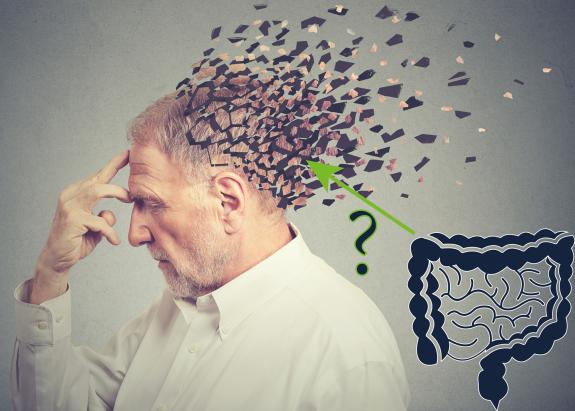We are pleased to present the European research network SmartAge, coordinated by the University Hospital Jena and funded by the EU. Our interdisciplinary team, in which 16 academic institutions and companies from 10 European countries work together, includes researchers from the fields of medicine, psychology, bioinformatics, nutrition and biosciences. They all work together on the topic of the "gut-brain axis" and train young international scientists.
Science calls the interaction between the digestive and mental organs the "gut-brain axis" and is only just beginning to understand how diverse this is. The entirety of bacteria in the intestine, known as the intestinal flora or microbiome, plays a far greater role than just that of an auxiliary worker for food processing. The microbiome moderates immune processes, and studies have also shown the connection between changes in the gut flora and mental and neurodegenerative diseases. The signaling pathways and cause-and-effect relationships of this complex interaction are the subject of current research.
The gut microbiome also plays an important role in the brain's ability to learn, which declines with increasing age, even in healthy individuals. As part of SmartAge, we are investigating this connection in more detail. We are particularly interested in whether measures such as a healthy diet and exercise have a positive influence on the intestinal flora and can therefore improve brain performance in older people. This knowledge will be used to develop microbiome-based therapies that slow down the natural ageing of the brain.
The so-called "from-bench-to-bedside" research concept of SmartAge means that relevant findings from basic research in the laboratory can be translated into clinically applicable knowledge for patients. In the three SmartAge sub-projects, which are being carried out at the University Hospital in Jena, we want to investigate how healthy nutrition, sport and exercise influence the interaction between gut flora and the brain, both in animal models and in humans.
As part of this year's Long Night of Science, we would like to invite you to get to know our SmartAge team in Jena and the research projects being carried out at the University Hospital:
(1) We will show you in the video and on the poster how our SmartAge mouse experiments work. So-called preclinical experiments on mice are indispensable in basic research in order to be able to investigate mechanisms, e.g. through molecular studies on intestinal and brain tissue, and also to test therapies before they are applied to patients. This allows us to increase our knowledge and ensure safety in therapy.
(2) The SmartAge patient study at the Department of Psychology: Do relaxation or sport keep the brain and gut fit in old age? We are investigating this question in a current study. Test subjects are undergoing an 8-week online intervention that can be carried out entirely from home. Depending on the group, this intervention includes exercises with a focus on relaxation or physical activity. Extensive examinations of physical and cognitive functions are carried out before and after the intervention. These include brain imaging using MRI, memory and attention tests, a fitness test and the analysis of a stool sample. As a thank you, all participants will receive a high-quality heart rate monitor as a gift on completion of the study!
Are you interested in taking part? Then simply contact us or send an e-mail to simon.schrenk@med.uni-jena.de.
(3) In some people, brain function deteriorates more in old age than would be expected with normal ageing processes. They have an increased risk of developing dementia. People who are concerned that this is the case for them or their relatives can receive advice, help, relevant examinations and, if necessary, treatment at the Jena Memory Center at the UKJ. We present the work of our interdisciplinary team.

